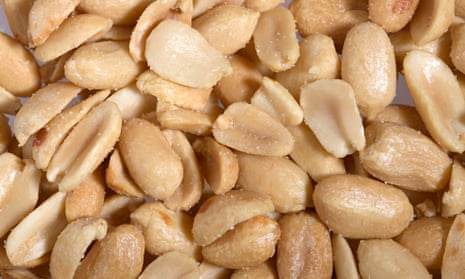Who wouldn’t want to get rid of their child’s peanut allergy? Headlines last week of the “key to a cure” were compelling reading for those who live in constant fear of a life-threatening reaction. Reports on the latest research from the Murdoch Children’s Research Institute in Melbourne do further the scientific debate.
The study, a randomised controlled trial of 60 children with peanut allergy, showed that receiving a fixed dose of a probiotic, Lactobacillus rhamnosus, together with a peanut protein in increasing amounts, led to 80% of those given the oral treatment being able to tolerate 2g of peanut protein daily (a whole peanut is equal to 240mg of peanut protein).
Only 4% of those given a placebo treatment could tolerate peanuts within two to five weeks of the trial. Last year, a Lancet study showed that children given increasing doses of peanut flour on its own over six months became desensitised, and able to tolerate up to five peanuts. But then, as now, the message is clear, just in case there is any doubt: NEVER, ever, try this at home.
The solution
Peanut allergy can be life-threatening and both studies were carried out under close clinical supervision and with doses different from those available outside a trial. During the Melbourne trial, some children had serious allergic reactions that needed treatment. There is currently no cure for peanut allergy, a condition that affects just over one in 100 children (some estimates are higher, at three in 100) in the western world.
Professor Mimi Tang, lead author of the Melbourne paper, says that more trials are needed. She would like parents to register children with peanut allergy for trials because it took her two and half years to get the 60 she needed for her study. She thinks probiotics might help to reduce the allergy because they interact with the gut’s immune system to promote tolerance.
To reduce the risk of children getting peanut allergy (thought to be due to genetic predisposition and environmental factors), Tang recommends introducing peanuts when children are aged between four and six months onwards. “The slow introduction of allergenic foods, such as peanut paste (not peanuts themselves), eggs and milk at this time may reduce risk of allergies because there seems to be a window of opportunity for tolerance,” she says.
The World Health Organisation disagrees, saying children should be solely breastfed for six months, while NHS Choices says peanut butter should not be eaten before six months.
An ongoing clinical trial, the Leap study – which has recruited enough children to at least ask when the right time to introduce peanuts is – should be reporting soon. Meanwhile, children – and adults, of course – with peanut allergies should be vigilant about what they eat, especially in takeaways and food prepared by other people.

Comments (…)
Sign in or create your Guardian account to join the discussion